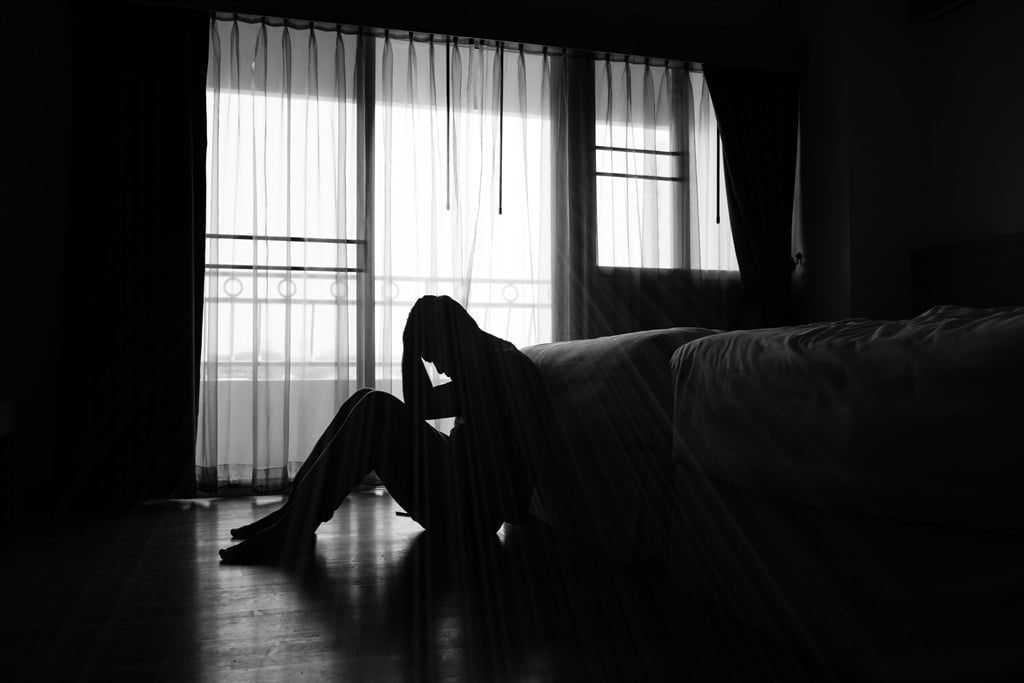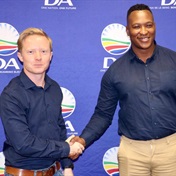
The wellbeing of research participants is generally taken into careful consideration during the research design stage. However, the researcher's own emotional and psychological wellbeing is rarely, if ever, taken into account, write Friederike Bubenzer and Nomzamo Ntombela.
It is mid December 2022, and we are huddled in a classroom whose bay windows overlook the sparkling Indian Ocean. There are 20 participants, and we’ve come to attend a workshop on researcher wellbeing hosted by the Centre for the Afterlife of Violence and the Reparative Quest (AVReQ) at Stellenbosch University.
The workshop precedes a three-day international conference titled Legacies of Violence and Trauma's Repair in the Global South.
Participants introduce themselves and their work. All of them are involved in social science research. And as the day unfolds, all of them will relate personal experiences relating to the immense psychological and emotional cost of their research. It is no surprise then that the session is oversubscribed; this is clearly an urgent and overdue conversation.
Our preparatory research for the workshop suggests that in South Africa, the wellbeing of research participants is generally taken into careful consideration during the research design stage. World-class mechanisms for ethics approval are in place at universities and other institutions. However, the researcher's own emotional and psychological wellbeing is rarely, if ever, taken into account.
Support structures to help researchers process the volumes of testimonies, personal narratives and news reports that they work through as part of their studies are few and far between. By and large, they are left to their own devices to cope with the frequently resulting compassion fatigue, vicarious trauma and burn-out that can accompany the processing of difficult content.
It is no wonder then, we postulate that few first-generation marginalised students go on to pursue postgraduate studies within the social sciences in South Africa: this is another fundamental support structure which institutions lack for their student community and researchers.
What do the researchers say?
South African researchers face many challenges in the course of their research journey. This becomes only too clear as the workshop begins, and participants feel at ease, comfortable to share their personal experiences in a safe space. A recent PhD graduate tells us how she battled to help her family understand her studies and that she had to teach herself to use language that her family would understand. Others nod in agreement and add similar reflections.
They narrate the tension between the personal and the academic (such as integrating family narratives and histories into one's research and exploring the trauma and silence around family and ancestral histories). A young Afrikaans woman adds that when she became a researcher, she became angry and unforgiving about all the injustice around her, adding that she felt overwhelming feelings of shame for what her people did and didn't do during apartheid.
The different types of reflections that surface during the day highlight the intersection between intersectionality and identity, which dislodges and disrupts different layers of the human experience during the research journey.
Want to discuss hotly debated topics with someone from across the world? Sign up for our global dialogue programme and get matched for a conversation
Referring to how the pervasive nature of her family narrative impacted her research, a Rwandan Master's student says, "My research was always going to find me", adding that students in the social sciences often chose research topics that relate closely to their own lived realities. Again, there is widespread agreement in the room.
There is a moment of silence before a first-year PhD student begins to talk about discovering that she had imposter syndrome, that widespread sense of self-doubt and feeling like a fraud.
Research suggests that imposter syndrome is widely experienced by accomplished women (and men) around the world. The theme echoes throughout the day and resurfaces in conversations throughout the three-day conference.
"I feel overwhelmed by the weight of the responsibility of having to 'hold' sensitive stories", says one woman.
Another asks, "Am I good enough to listen to and interpret these narratives?"
The room goes quiet when one participant admits that she wakes up every day wanting to cry because her research has underscored how much pain there is around her.
The particular experience of female researchers permeates the discussions of the day (all but one of the participants were female) as experiences of navigating risk and personal safety, juggling family responsibilities and work and negotiating the pervasive nature of gender-based violence in SA are shared. Asked about the availability of support structures at universities or as part of their organisational structures that could help them constructively address these challenges. Widespread silence.
Icebergs, self-care and institutional responsibility
To ensure that the compromised wellbeing of students and researchers does not affect and compromise the data they are collecting, nor prevent researchers from engaging in the work long term; much more attention must be paid to researcher wellbeing.
In her seminal account of documenting the daily proceedings of the South African Truth and Reconciliation Commission, journalist Antjie Krog describes the engagement between TRC staff and a psychologist invited to help individuals cope with the physical and psychological impacts of listening to and recording the horrific testimonies of victims and survivors.
To help participants grapple with the neurological impact of stress and the related health and wellbeing risks and to talk about stress mitigation techniques, psychologist Dr Chinwe Obuaku-Igwethe from the University of the Western Cape and Stellenbosch Professor Ronelle Carolissen were invited to join the workshop.
They offer helpful, practical suggestions on how to mitigate stress and vicarious trauma during the research journey. These include intentionally learning how to read sensitive materials without attaching emotions to the content, developing a clear and concise research question to help narrow the spectrum of the data and the data analysis; and to prevent the expansion of reading beyond the scope.
Dr Obuaku-Igwethe suggests setting up ‘accountability partnerships’ or ‘clusters’ to build support structures amongst peers. She calls this ‘collaborative witnessing’, where symbiotically supportive relationships give way to creating safe spaces to hold one another's experiences.
Both Obuaku-Igwethe and Carolissen suggest the importance of developing a self-care routine. They spell out activities such as journaling, conducting regular exercise, committing to a spiritual practice such as meditation or prayer, spending time in nature, establishing a healthy sleep routine and setting boundaries in order to build a healthy work-life balance. But this must be taught, and the onus must be on institutions to ensure that the cost of data collection and scientific advancement does not outweigh the emotional and professional strength and wellbeing of the people behind the process.
'I have a duty to speak the truth'
Participants expressed their gratitude for having had the opportunity to share their experiences with one another; a number of individuals expressed having felt alone on their research journey to date and that the pre-conference workshop had highlighted to them the universality of many of the challenges they faced.
All participants expressed a need for increased support while conducting existing and future research-both in preparing them to ethically and compassionately engage with research subjects in contexts affected by direct and structural violence and when processing and analysing difficult primary and secondary data.
Feminist scholar, Audre Lorde, writes:
Lorde's message echoed loudly for those who participated but also designed the workshop. As students, researchers and institutions conducting sensitive research, it is vital that we proactively engage the experiences of those whom we encounter as well as peers and colleagues, other students and practitioners the impact that this work has on us so that others, too, might learn how to survive in this field healthily.
- Friederike Bubenzer is an independent peacebuilding practitioner who has experienced first-hand the damaging psychological impact of conducting research in communities affected by violent conflict.
- Nomzamo Portia Ntombela is a PhD candidate in Sociology at Stellenbosch University who has been a social researcher and activist for years.
*Want to respond to the columnist? Send your letter or article to opinions@news24.com with your name and town or province. You are welcome to also send a profile picture. We encourage a diversity of voices and views in our readers' submissions and reserve the right not to publish any and all submissions received.
Disclaimer: News24 encourages freedom of speech and the expression of diverse views. The views of columnists published on News24 are therefore their own and do not necessarily represent the views of News24.




 Publications
Publications
 Partners
Partners
























